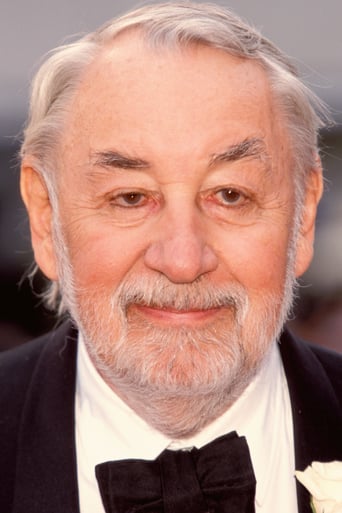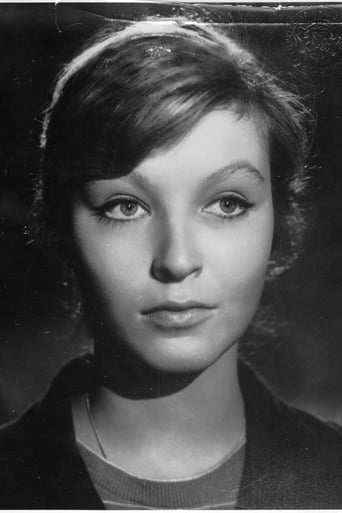Moustroll
Good movie but grossly overrated
Beanbioca
As Good As It Gets
Dirtylogy
It's funny, it's tense, it features two great performances from two actors and the director expertly creates a web of odd tension where you actually don't know what is happening for the majority of the run time.
Kien Navarro
Exactly the movie you think it is, but not the movie you want it to be.
Barbouzes
This movie tackles heads-on a very interesting period in French history, when the nephew of Louis XIV , Philippe d'Orleans, was made regent for 10 years while Louis XV, a 5-year old child, waited for his majority. Its strength: the angle chosen by the scriptwriters, who encapsulate in 90 mn a sharp evaluation of the character of the Regent in the context of the era he lived in. The director makes the choice to shows us a man eager and able to do good for the country, while jaded in every other part of his life. The story is cynical and bawdy, but there is great wit in the dialogs, and very sharp moments of political observations relevant to the period (as well as to our modern period, frankly). We see the Powerful, the Entitled, the greedy, the ambitious and the scruple-free, and we occasionally glimpse at the rest: the Poor, brutalized and hopeless. I liked how the figure of Philippe d'Orleans, a libertine and miscreant who notoriously managed to govern France wisely against all odds, is humanized here by his keen intelligence of the facts around him, and how he grabs the viewers' empathy thanks to his self-awareness -and inherent compassion-while steeped in widespread decay. Whether, as a ruler, he deepened that general decay with his own turpitudes, or whether despair in front of its extent prevented him from fighting it is the question the film poses.Unfortunately, this sharp attention to the character of Philippe is not given to the rest of the production. There is a feel of 'made for TV" movie about both the production and the casting. The main parts (Rochefort, Marielle and Noiret, Vlady) are wonderfully acted and utterly believable; but the rest of the cast feels like a bunch of extras hired on the run, thrown a costume and told to look and act "peasant", "soldier", "nun", "nude prostitute", "blind musician". I noted for instance that all the "starving" peasants look in fact well fed, and that the château's staff is forever statically sweeping the floor or pouring liquids in glasses. It seems no one cared to give them real directions, and that flaw distracted my attention too often. As a historical or political pamphlet, Let Joy Reign Supreme is truly a compelling movie to watch. But as a work of art, it left me wanting.
tils4
This banquet, unlike one of foodstuffs, can be savored again and again to discover its parts. A political tale, a moral tale, an aesthetic breadth that rewards repeated viewing. The casual brutality of the palace: children playing darts against a painting; nobles and servants tossing around a dead rat; and, of course, the walking latrine! As above, so below: brutish soldiers, "shanghai-ers" for the colonies, provincial nobles who live in squalid houses barely above hovels. Noiret, Rochefort, Marielle so perfectly embody their characters; wise yet inconstant Orleans, conscienceless striver Dubois, impetuous, foolish yet gentlemanly Pontcallac. It would be rewarding to view this en suite with Etore Scola's brilliant "La Nuit de Varennes" to bracket the themes.
kalala
This is a film that has haunted me for thirty years. I just re-viewed it on DVD and it was every bit as good as I remembered. I don't know why it doesn't show up in festivals and best-of-all-times list; it is on mine. It is satisfyingly densely textured and the acting is flawless. It is rich in every way-- historically fascinating as it shows the tugging at the fibers of France that would eventually (but not quite yet) culminate in revolution, the many nuances of class resentment from the top down -- tension between royalty and nobility, generals and (would-be) clergy, and provincial gentry and their peasantry. Luxurious scenes and costumes and cinematography. Psychologically rich, terrific dialog, in the closely twined relationship between jaded nobility and ambitious bourgeois that plays out in a tug-of-war over the fate of Bretons. Philippe Noiret as the jaded regent is the ambiguous moral center, stoic yet decadent, embodying la patrie yet carving a private erotic niche apart from a world where his decision can tip the balance of European powers.
real_satanique
This is one of my all time favorite movie and probably the best historical movie ever. One of the few movies featuring 3 of the best french actors (in leading roles): Philippe Noiret, Jean Richefort and Jean-Pierre Marielle. This movie is about how cynical France was ruled after the death of Louis XIV and while the new (Louis XV) was just a child. Don't expect a spectacular movie with great action and bloody violence (like Gladiator or Brave Heart). The pleasure with this movie is somewhere else: dialogs (brilliant), description of cynicism of the nobility and the actors performances (Jean Rochefort, playing L'Abbé Dubois, stoled the show).





